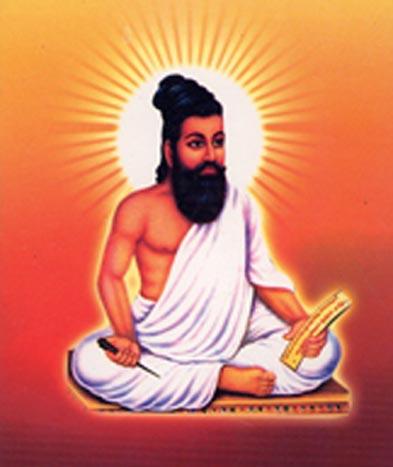STRENGTH

Health is strength.
Youth is strength.
Purity is strength
Patience is strength
Perseverance is strength and
Above all Prayer is Power and Strength.
—– Swami Vivekananda.
Articles on music, spirituality, self development and humor
STRENGTH

Health is strength.
Youth is strength.
Purity is strength
Patience is strength
Perseverance is strength and
Above all Prayer is Power and Strength.
—– Swami Vivekananda.
Courage

Courage, hope and cheer, let these three occupy you in your journey;
Courage that is born of inner conviction that knows no fear;
Courage that is born of knowledge is heir to the Divine power.
Fearlessness comes through the practice of unselfishness.
When selfish side of our life dies away the nobler, bigger, braver, God-side will manifest itself.
– Swami Vivekananda.
IMAGE
Many people are in search of FORMULA for creating a good image.
A good public image is not made up of a single act of great merit.
It is the sum total effect created by the individual’s thought, action, habits, attitudes and personal philosophies.

A Smile costs nothing, but gives much. It enriches those who give it. It takes but a moment, but the memory of it sometimes lasts forever. None is so rich or mighty that he can get along without it, and none is so poor but that he cannot be made richer by it.
A Smile creates happiness in the home, promotes good will in business and is the cornerstone of friendship. It can perk up the weary, bring cheer to the discouraged, sunshine to the sad, and is nature’s best antidote for trouble.
Yet it cannot be brought, begged, borrowed or stolen, for it is something that is of no value to anyone until it is given away.
When people are too tired to give you a smile, give them one of yours.
No one needs a smile so much as he who has none to give.
EASY AND DIFFICULT

Easy is to get a place in someone’s address book or phone;
Difficult is to get a place in someone’s heart.
East is to judge the mistakes of others;
Difficult is to recognize our own mistakes.
East is to talk without thinking;
Difficult is to refrain the tongue.
East is to hurt some one who likes us;
Difficult is to heal the wound.
East is to keep friendship with words;
Difficult is to keep it with meanings.
East or Difficult Learn to Manage.
—- Thiruvalluvar.
The story of three skulls. : Once a Raksasa appeared in the Darbar of Raja Vikramaditya with three skulls and told him that he would kill all the Pandits in his court if they were not able to select the best skull amongst the three within a week.

Vikramaditya agreed to the proposal, and at once called all his Pandits and gave them the message of the Raksasa. All the Pandits trembled with fright when they heard the message of the Raksasa. But, fortunately, there was one intelligent Pandit, Rajarama Sastri by name. He gave solid encouragement to all Pandits and told the Raja that he would select the best skull for the Raksasa without any difficulty and quickly.
After seven days, the Raksasa again appeared to the Raja’s palace. Pandit Rajarama Sastri entered the platform and said: “The skull in which this iron rod could enter from one ear to the other is the worst one. It is not worth even a farthing. That skull in which the iron rod would pass from one ear towards the mouth is the middling one. And that skull in which this rod wold pass from one ear to the heart directly is the best of all.” He then handed over the best skull to the Raksasa. the Raksasa bowed and hung his head in shame and left the Darbar. The Pandit was, of course, honoured by the Raja with rich presents of gold, shaws and cows.
MORAL OF THE STORY is that those who hear religious instructions through one ear and and allow them to pass through another ear without further thinking and practice of those valuable instructions are worthless people, like the worst skull. Those who hear the instructions through one ear and talk on these subjects at least occasionally are the middling class, like the middling skull. But, those who hear the instructions through one ear and and allow them to pass deeply into their very hears and practise them in right earnest are the best class of people, like the best skull. — Swami Sivananda
Coming again to my point, mere reading, and talking on the subject of success in life and God-realisation will not do. We will have to put into practice immediately whatever we have learnt from these stories and become an exalted Yogi or a Jnani.

There is a way of detachment you must practice; from the character flaws and habits grated onto your soul through the influence of your environment and ungoverned subconscious mind.
Introspect daily;
Sit down and analyze yourself deeply.
Find out whether you are a slave to the sense, always controlled by a craving for some pleasure.
Each one of you has some particular inclination to conquer. Perhaps you are too greedy, or too sexually conscious, or you love flattery or are prone to anger.
If you sit quietly and ask yourself, “What is wrong with me? What am I like, and why am I this way?”.
You will begin to understand yourself clearly.
And once you begin to identify your weaknesses, do not be overcome by discouragement instead, use your sword of wisdom and discrimination and your will power to get rid of those bad habits.
The Story of Jayamala
There was a king named Jayamala who loved Krishna with all his heart. He followed with unfailing devotion, all the rites and ceremonies associated with the adoration of Sri Krishna, whom Jayamala worshipped under the name of Syamalasundara. Completely satisfied with his own Deity, he never directed his attention to any other God or Goddess. One of the inflexible rules of his devotions was to worship the Deity daily till almost midday. He would never deviate from this practice, even at the risk of his wealth or his kingdom. Learning this secret, an enemy king invaded the kingdom during the morning hours. Jayamala’s soldiers could not fight without his command; so they watched the invasion silently. Slowly the enemy surrounded the moat of the capital; yet Jayamala did not come out of his shrine room. His mother came to him and wept bitterly, trying to persuade the king to fight. He said to her calmly: “Why are you worried? Syamalasundara gave me this kingdom. What can I do if He had decided to take it away? On the other hand, none will be able to do me harm if He protects me. Our own efforts are vain.”

Actually, in the meantime, Syamalasundara, the Deity Himself had taken the King’s horse from the stable and had ridden fully armed to the field. Alone He faced the hostile king and alone destroyed his army. Having crushed the enemy forces, the Deity returned to the temple and fastened the horse nearby. Jayamala, on completing his worship, came out and discovered the horse there, panting and covered with sweat. “Who has been riding my horse?” He demanded. “Who brought it to the temple?” The officers declared they knew nothing about it. In a pensive mood the king proceeded to the battlefield with his army and there found the enemy, with the exception of their leader, lying dead. He was staring uncomprehendingly at the scene, when the enemy king approached, worshipped him and said: “Please permit me to tell you something. How could I fight? You have a warrior who could conquer the entire world. I do not want your wealth or your kingdom; indeed I will gladly give you my own, if you will tell me about that Blue Warrior, your friend. No sooner did I turn my eyes on Him than he cast a spell on my heart and soul.” Jayamala then realized it had been none other than Syamalasundara that had appeared on the battlefield. The enemy king understood too. He worshipped Jayamala and through his blessings received Krishna’s grace.
MORAL OF THE STORY:
Belief brings miracle. We must do our daily routines. Nitya karma. Balance will be taken care of by God.